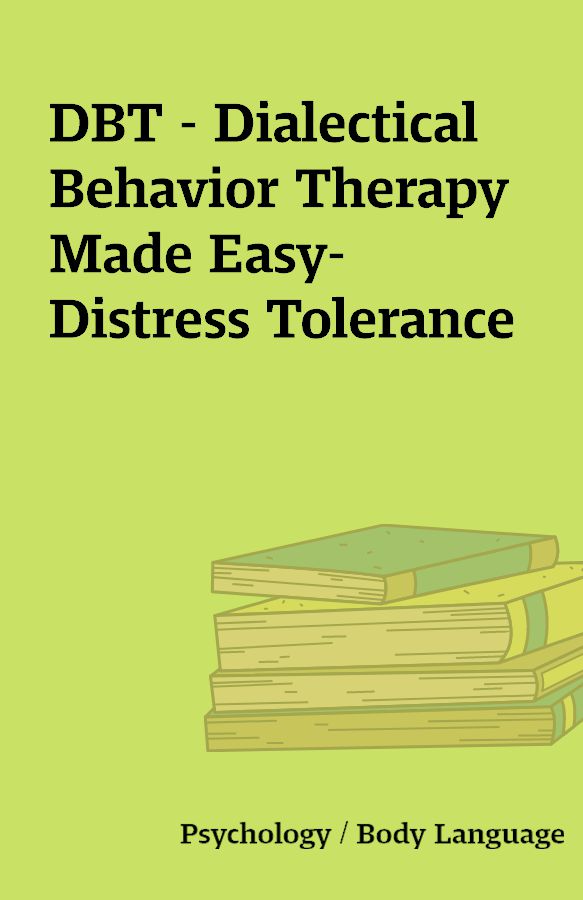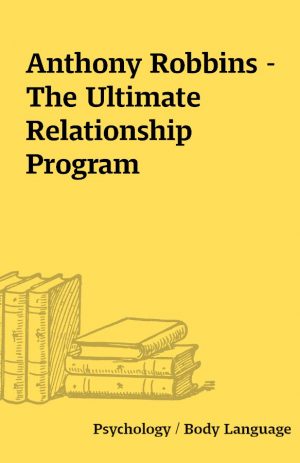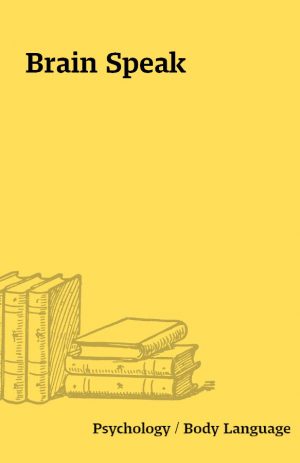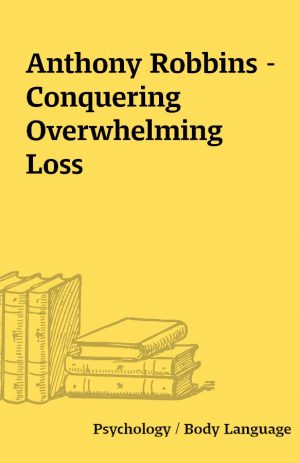DBT – Dialectical Behavior Therapy Made Easy-Distress Tolerance
Dialectical Behavior Therapy Made Easy-Distress Tolerance.mp4
Description
Dialectical Behavior Therapy Made Easy-Distress ToleranceRipped from Youtube: http://www.youtube.com/watch?v=IuOjGwsKdgIIf you have any interest in this look at our GBCognitive Therapy ” ACT ” 44 DVDs next Items we will purchase are:Cognitive Therapy for Challenging Problems (4 DVDs) $169.99 10 Best-Ever Depression Treatment Techniques (4 DVDs) $169.99Very Best Treatment for ADHD and the Processing Disorders: Immediate Evidence-Based Strategies that Work! (4 DVDs) $169.99Complete DBT Series Set: All 6 Sessions(12 DVDs) $399.99[/center[center]Come Join us.Dialectical behavior therapyFrom Wikipedia, the free encyclopediahttp://en.wikipedia.org/wiki/Dialectical_behavior_therapy#Th…OverviewLinehan observed “burn-out” in therapists after coping with non-motivated patients who repudiated co-operation in successful treatment. Her first core insight was to recognize that the chronically suicidal patients she studied had been raised in profoundly invalidating environments and therefore required a climate of unconditional acceptance (not Carl Rogers’ humanistically “positive” version, but Thich Nhat Hanh’s metaphysically neutral one)[note 1] in which to develop a successful therapeutic alliance. Her second insight involved the need for a commensurate commitment from patients, who needed to be willing to accept their dire level of emotional dysfunction.DBT strives to have the patient view the therapist as an ally rather than an adversary, in the treatment of psychological issues. Accordingly, in DBT the therapist aims to accept and validate the client’s feelings at any given time while nonetheless informing the client that some feelings and behaviors are maladaptive, and showing them better alternatives.[2]Linehan and others combined a commitment to the core conditions of acceptance and change through the Hegelian principle of dialectical progress (in which thesis + antithesis → synthesis) and assembled an array of skills for emotional self-regulation drawn from Western psychological traditions (e.g., cognitive behavioral therapy and an interpersonal variant, “assertiveness training”) and Eastern meditative traditions (e.g., Buddhist mindfulness meditation). Arguably her most significant contribution was to alter the adversarial nature of the therapist/client relationship in favour of an alliance based on intersubjective tough love.All DBT can be said to involve two components:An individual component in which the therapist and patient discuss issues that come up during the week, recorded on diary cards, and follow a treatment target hierarchy. Self-injurious and suicidal behaviors take first priority, followed by therapy-interfering behaviors. Then there are quality of life issues and finally working towards improving one’s life generally. During the individual therapy, the therapist and patient work towards improving skill use. Often, a skills group is discussed and obstacles to acting skillfully are addressed.A group component in which the group ordinarily meets once weekly for two to two-and-a-half hours and learns to use specific skills that are broken down into four modules: core mindfulness skills, interpersonal effectiveness skills, emotion regulation skills, and distress tolerance skills.Neither component is used by itself; the individual component is considered necessary to keep suicidal urges or uncontrolled emotional issues from disrupting group sessions, while the group sessions teach the skills unique to DBT, and also provide practice with regulating emotions and behavior in a social context.[edit]The four modules[edit]MindfulnessMindfulness is one of the core concepts behind all elements of DBT. Mindfulness is the capacity to pay attention, non-judgmentally, to the present moment. Mindfulness is all about living in the moment, experiencing one’s emotions and senses fully, yet with perspective. It is considered a foundation for the other skills taught in DBT, because it helps individuals accept and tolerate the powerful emotions they may feel when challenging their habits or exposing themselves to upsetting situations. The concept of mindfulness and the meditative exercises used to teach it are derived from traditional Buddhist practice, though the version taught in DBT does not involve any religious or metaphysical concepts.[edit]Skills within the Mindfulness module[edit]The “What” SkillsObserveThis is used to non-judgmentally observe one’s environment within or outside oneself. It is helpful in understanding what is going on in any given situation.DescribeThis is used to express what one has observed with the observe skill. It is to be used without judgmental statements. This helps with letting others know what you have observed.ParticipateThis is used to become fully involved in the activity that one is doing. To be able to fully focus on what one is doing.[edit]The “How” SkillsNon-JudgmentallyThis is the action of describing the facts, and not thinking about what’s “good” or “bad”, “fair”, or “unfair.” These are judgments because this is how you feel about the situation but isn’t a factual description. Being non-judgmental helps to get your point across in an effective manner without adding a judgment that someone else might disagree with.One-MindfullyThis is used to focus on one thing. One-mindfully is helpful in keeping your mind from straying into emotion mind by a lack of focus.EffectivelyThis is simply doing what works. It is a very broad-ranged skill and can be applied to any other skill to aid in being successful with said skill.[8][edit]Distress ToleranceMany current approaches to mental health treatment focus on changing distressing events and circumstances. They have paid little attention to accepting, finding meaning for, and tolerating distress. This task has generally been tackled by psychodynamic, psychoanalytic, gestalt, or narrative therapies, along with religious and spiritual communities and leaders. Dialectical behavior therapy emphasizes learning to bear pain skillfully.Distress tolerance skills constitute a natural development from DBT mindfulness skills. They have to do with the ability to accept, in a non-evaluative and nonjudgmental fashion, both oneself and the current situation. Although this is a nonjudgmental stance, this does not mean that it is one of approval or resignation. The goal is to become capable of calmly recognizing negative situations and their impact, rather than becoming overwhelmed or hiding from them. This allows individuals to make wise decisions about whether and how to take action, rather than falling into the intense, desperate, and often destructive emotional reactions that are part of borderline personality disorder.[edit]Skills within the Distress tolerance module[8]Distract with ACCEPTSThis is a skill used to distract oneself temporarily from unpleasant emotions. The acronym breaks into:Activities: Use positive activities that you enjoy.Contribute: Help out others or your community.Comparisons: Compare yourself either to people that are less fortunate or to how you used to be when you were in a worse state.Emotions (other): cause yourself to feel something different by provoking your sense of humor or happiness with corresponding activities.Push away: Put your situation on the back-burner for a while. Put something else temporarily first in your mind.Thoughts (other): Force your mind to think about something else.Sensations (other) – Do something that has an intense feeling other than what you are feeling, like a cold shower or a spicy candy.Self SootheThis is a skill in which one behaves in a comforting, nurturing, kind, and gentle way to oneself. You use it by doing something that is soothing to you. It is used in moments of distress or agitation.IMPROVE the MomentThis skill is used in moments of distress to help one relax. The acronym stands for:Imagery: Imagine relaxing scenes, things going well, or other things that please you.Meaning: Find some purpose or meaning in what you are feeling.Prayer: Either pray to whomever you worship or if not religious, chant a personal mantra.Relaxation: Relax your muscles, breathe deeply; use with Self Soothing.One thing in the moment: Focus your entire attention on what you are doing right now. Keep yourself in the present.Vacation (brief): Take a break from it all for a short period of time.Encouragement: Cheer-lead yourself. Tell yourself you can make it through this.Pros and ConsThink about the positive and negative things about not tolerating distress.Radical AcceptanceLetting go of fighting reality. Accept your situation for what it is.Turning the MindTurn your mind towards an acceptance stance. It should be used with Radical Acceptance.Willingness vs. WillfulnessBeing willing and open to do what is effective. Let go of a willful stance which goes against acceptance. Keep your eye on the goal in front of you.[edit]Emotion RegulationIndividuals with borderline personality disorder and suicidal individuals are frequently emotionally intense and labile. They can be angry, intensely frustrated, depressed, or anxious. This suggests that these clients might benefit from help in learning to regulate their emotions. Dialectical behavior therapy skills for emotion regulation include:[9][10]Identifying and labeling emotionsIdentifying obstacles to changing emotionsReducing vulnerability to emotion mindIncreasing positive emotional eventsIncreasing mindfulness to current emotionsTaking opposite actionApplying distress tolerance techniques[edit]Skills within the Emotion regulation module[8]Story of EmotionUsed to understand what kind of emotion one is feeling. To use this, list the following:Prompting eventInterpretation of the eventBody sensationsBody languageAction urgeActionEmotion name, based on previous items on list.PLEASE MASTERHaving ineffective health habits can make one more vulnerable to emotion mind. This skill is used to maintain a healthy body so one is more likely to have healthy emotions. It is an acronym that stands for the following:PhysicaL Illness (treat): If you are sick or injured, get proper treatment for it.Eating (balanced): Make sure you eat a proper healthy diet, and eat in moderation.Avoid Mood-Altering Drugs: Do not take non-prescribed medication or illegal drugs. They are very harmful to your body, and can make your mood unpredictable.Sleep (balanced): Do not sleep too much or too little. 8 hours of sleep is recommended per night for the average adult.Exercise: Make sure you get an effective amount of exercise as this will both improve body image, and release endorphins (making you happier).MASTERy (build): Try to do one thing a day to help build competence and control.Opposite ActionThis skill is used when you have an unjustified emotion, one that doesn’t belong in the situation at hand. You use it by doing the opposite of your urges in the moment. It is a tool to bring you out of an unwanted or unjustified emotion by replacing it with the emotion that is opposite.Problem SolvingThis is used to solve a problem when your emotion is justified. It is used in combination with other skills.Letting Go of Emotional SufferingObserve and experience your emotion, accept it, then let it go.[edit]Interpersonal EffectivenessInterpersonal response patterns taught in DBT skills training are very similar to those taught in many assertiveness and interpersonal problem-solving classes. They include effective strategies for asking for what one needs, saying no, and coping with interpersonal conflict.Individuals with borderline personality disorder frequently possess good interpersonal skills in a general sense. The problems arise in the application of these skills to specific situations. An individual may be able to describe effective behavioral sequences when discussing another person encountering a problematic situation, but may be completely incapable of generating or carrying out a similar behavioral sequence when analyzing his or her own situation.The interpersonal effectiveness module focuses on situations where the objective is to change something (e.g., requesting that someone do something) or to resist changes someone else is trying to make (e.g., saying no). The skills taught are intended to maximize the chances that a person’s goals in a specific situation will be met, while at the same time not damaging either the relationship or the person’s self-respect.[edit]Skills within the Interpersonal effectiveness module[8]DEARMAN – to get somethingAcronym for the skillset used to aid you in getting what you want when you ask:Describe your situation.Express why this is an issue and how you feel about it.Assert yourself by asking clearly for what you want.Reinforce your position by offering a positive consequence if you were to get what you want.Mindful of the situation by focusing on what you want and ignore distractions.Appear Confident even if you don’t feel confident.Negotiate with a hesitant person and come to a comfortable compromise on your request.GIVE – giving somethingThis is a skill that can aid you with maintaining your relationships, whether they are friendships, coworkers, family, romantic, etc. It is to be used in conversations. It is another acronym that stands for the following:Gentle: Use appropriate language, no verbal or physical attacks, no put downs, avoid sarcasm unless you are sure the person is alright with it, and be courteous and non-judgmental.Interested: When the person you are speaking to is talking about something, act interested in what they are saying. Maintain eye contact, ask questions, etc. Do not use your cell phone while having a conversation with another person!Validate: Show that you understand a person’s situation and sympathize with them. Validation can be shown through words, body language and/or facial expressions.Easy Manner: Be calm and comfortable during conversation, use humor, smile.FAST – keeping self respectThis is a skill to aid you in maintaining your self-respect. It is to be used in combination with the other Interpersonal Effectiveness skills. It is another acronym, and it stands for the following:Fair: Be fair to both yourself and the other person.Apologies (few): Don’t apologize more than once for what you have done ineffectively, or apologize for something which was not ineffective.Stick to Your Values: Stay true to what you believe in and stand by it. Don’t allow others to get you to do things against your values.Truthful: Don’t lie. Lying can only pile up and damage relationships and your self-respect.
You must be logged in to post a review.






Reviews
There are no reviews yet.